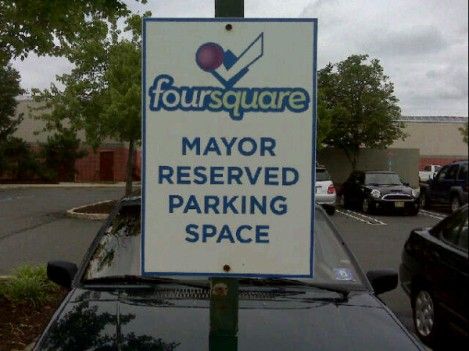How Will Location-based Social Media Affect Healthcare?
Location-based social media applications are growing rapidly in popularity and appear to be here to stay. But how can the healthcare industry leverage these application to improve consumers' health?
If you’ve been following the social media trends over the last year or so, you’ve probably at least heard about location-based social media applications such as Foursquare, GoWalla, and, most recently, Facebook Places. For those who are not familiar with these programs, consider this a location-based social networking 101.
The idea behind each of these services is to “check in” to whatever location they are in, whether it’s a large venue like a concert or ballpark or a mom-and-pop, local coffee shop. By doing so, users are able to accumulate points and even see if any of their friends are in the area (assuming their friends are using the service as well). The way it works is this: users’ phones are able to populate a list of businesses within a small radius using a GPS functionality, at which point they can select the one where they are and complete the check in. In doing so, they send can opt to share their real time information with friends (people they have approved to see their check ins). If they happen to be in the same general area, it’s a way for people to meet up, something that may not have otherwise happened had they not shared this information.
These applications are rapidly growing in popularity, and with good reason; consumers are finding that with every use, they are being presented with coupons, offers, and other perks. Those that check in to a certain location more than anyone else become the honorary “mayor,” and many business have started rolling out certain privileges for their mayor. For instance, Starbucks mayors get an extra discount on their coffee drinks, and retailers like Ann Taylor and Gap have begun to roll out similar offers. This is just the tip of the iceberg; new businesses are jumping on the bandwagon every day. And users don’t necessarily have to be mayors to be offered a deal—by simply checking into a location, they could be presented with a notification that a business in the general vicinity of where they are is having some kind of special discount for these application users.

So right now you are probably thinking, “Ok, so I can get some good deals if I feel like getting involved with location-based social networking. But how does this affect healthcare?” Glad you asked.
About a year ago, location-based social networking apps like these were still in their infancy, and aside from die hard social networking junkies, there weren’t too many people jumping on board. However, as the word got out, more and more people started signing up, and now that there’s a growing audience (Foursquare just surpassed 3 million registrants last month). Businesses know that they can offer deals. Users know that they can utilize information to meet up with others (some users have even created scavenger hunts and other similar events in major cities). But now, as with anything that rapidly grows in popularity, people are starting to think outside of the box and come up with all sorts of ways to use this type of service, and, in late August, the first attempt to utilize ocation-based social media in healthcare took place.
In addition to working towards becoming the “mayor” of a particular locations and possibly reaping any additional benefits, users can also earn “badges” for completing certain tasks. For instance, a certain amount of check ins in a day or a certain amount of check ins at a particular location will earn users different badges. The badges don’t necessarily translate to any special benefits; they are more of an interactive and fun way to keep users interested in the applications. Many users enjoy collecting as many badges as possible, and, with some of these applications, there's an online scorecard which tallies points and badges among groups of friends.
With that in mind, MTV has teamed up with Foursquare to create a special badge that users will receive if they check in at a location to have an STD test performed. The campaign is called MTV’s GYT: Get Yourself Tested, and users who do so during the month of September will receive the first ever cause-related badge. In addition, all users who get an STD checkup and the related badge will be entered to win a trip for two to New York City and backstage passes to MTV’s 10 on Top show. The initiative seeks to “help young people become more aware of how common STDs are — according to MTV, one in two people will contract an STD by age 25.”
It may not be a monumental splash, but it’s certainly a start. Plenty of publicity has been given to the initiative, and if successful, it will almost certainly lead to more ideas to incorporate these applications in healthcare down the road. We are social by nature, and applications like this can help to inject some fun or incentive into something that would otherwise be mundane.
Do you use location-based social media applications? What possibilities do you see for the future of healthcare-related incentives in location-based social media?
2 Commerce Drive
Cranbury, NJ 08512
All rights reserved.